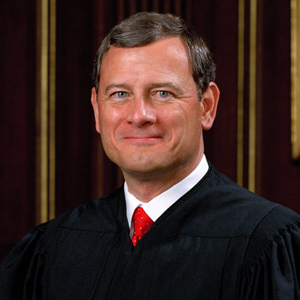Chief justice: Judges and lawyers should heed speedy justice idea in 'big deal' civil rule changes

Chief Justice John Roberts.
Changes in the Federal Rules of Civil Procedure highlight lawyers’ affirmative duty to work together to achieve prompt and efficient resolutions of disputes, according to Chief Justice John G. Roberts Jr.
In his Year-End Report on the Federal Judiciary (PDF), Roberts called for “a change in our legal culture that places a premium on the public’s interest in speedy, fair and efficient justice.”
Roberts pointed to the amended rules’ increased reliance on the concept of discovery that is proportional to the needs of the case. That and other civil rule amendments place “a premium on the public’s interest in speedy, fair and efficient justice,” Roberts said. “The amendments may not look like a big deal at first glance, but they are,” he said.
Federal judges and lawyers both need to “step up to the challenge of making real change” as envisioned by the amendments, Roberts said.
“Judges must be willing to take on a stewardship role, managing their cases from the outset rather than allowing parties alone to dictate the scope of discovery and the pace of litigation,” Roberts said. “A well-timed scowl from a trial judge can go a long way to moving things along crisply.”
“As for the lawyers, most will readily agree—in the abstract—that they have an obligation to their clients, and to the justice system, to avoid antagonistic tactics, wasteful procedural maneuvers, and teetering brinksmanship. I cannot believe that many members of the bar went to law school because of a burning desire to spend their professional life wearing down opponents with creatively burdensome discovery requests or evading legitimate requests through dilatory tactics.”
The Washington Post, the Los Angeles Times, the New York Times and the National Law Journal (sub. req.) have stories on the report.
The New York Times included comments from experts who viewed the civil rule amendments as too sweeping, including University of Pennsylvania law professor Stephen Burbank.
“These amendments take a problem that arises chiefly in complex, high-stakes litigation between corporations, and devise solutions that necessarily apply to all federal litigation,” Burbank said. “As a result, the layers of additional expense that active judicial management can impose make litigation costlier for litigants less able to afford it, including most importantly individuals.”



